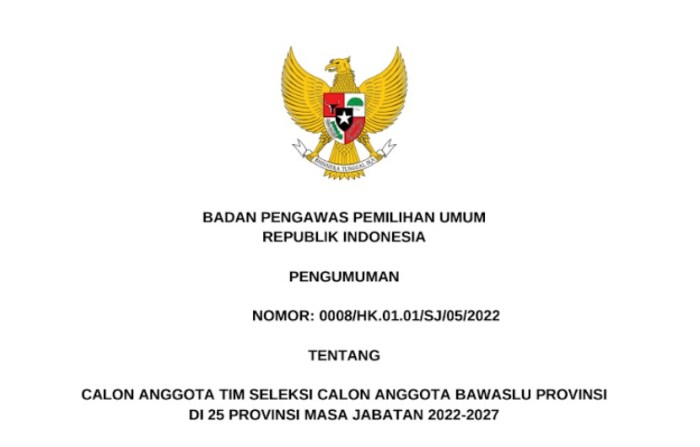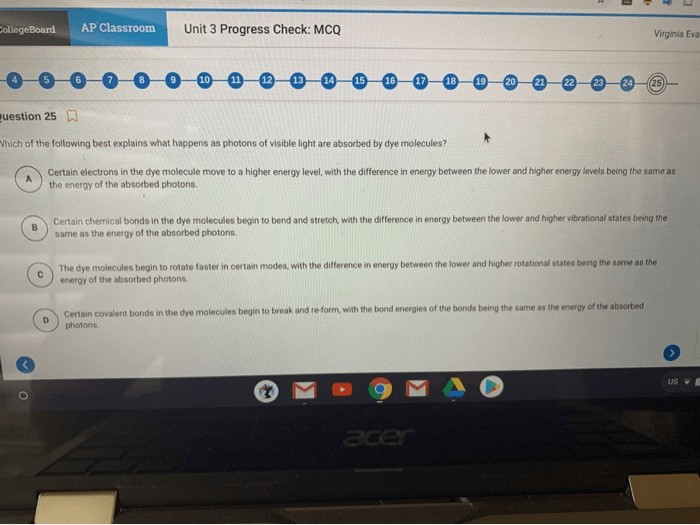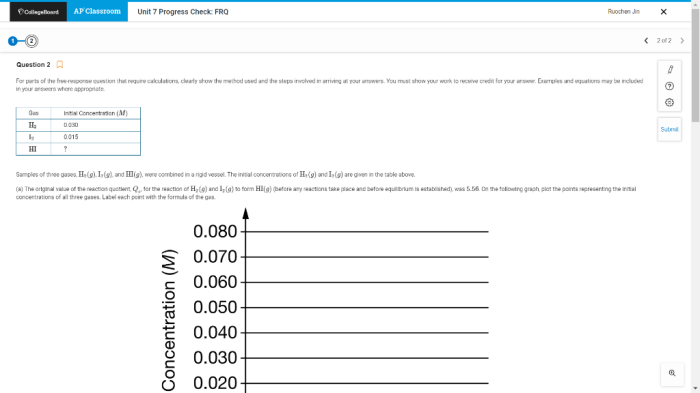Unit 6 Apes Progress Check sets the stage for this enthralling narrative, offering readers a glimpse into a story that is rich in detail and brimming with originality from the outset.
Delve into the intricacies of the progress check, exploring its significance, core learning objectives, assessment methods, and implications for future instruction. Together, we will navigate the complexities of student performance analysis, identifying areas of strength and weakness, and devising practical strategies for improvement.
Unit 6 Apes Progress Check

The Unit 6 Apes Progress Check is a valuable assessment tool that helps students evaluate their understanding of the key concepts covered in the unit. It serves as a checkpoint, allowing students to identify areas where they excel and areas where they need additional support.
Core Learning Objectives
The progress check assesses students’ comprehension of the following core learning objectives:
- Understanding the concept of natural selection and its role in evolution
- Analyzing the evidence for evolution from various sources
- Explaining the mechanisms of speciation and extinction
- Evaluating the impact of human activities on biodiversity
By completing the progress check, students can gain a deeper understanding of these fundamental concepts and prepare for future assessments.
Now that you’ve completed Unit 6 of APES, you may be interested to learn about the trial of Tempel Anneke, a fascinating case that sheds light on the challenges of protecting the environment. Read about the trial here to gain insights into the complexities of environmental law and the importance of preserving our planet.
After exploring this case, return to your Unit 6 APES progress check to reinforce your understanding of environmental issues.
Methods of Assessment

The Unit 6 Apes Progress Check employs various assessment methods to evaluate student understanding and progress.
These methods include:
Multiple-Choice Questions
Multiple-choice questions present students with a set of options from which they must select the best answer. They assess students’ recall of factual information and their ability to apply concepts.
Short-Answer Questions
Short-answer questions require students to provide brief, written responses. They assess students’ ability to explain concepts, describe processes, and make connections between ideas.
Essays
Essays allow students to demonstrate their understanding of complex topics by writing extended responses. They assess students’ critical thinking, analytical skills, and ability to organize and present information effectively.
Projects
Projects involve students in creating presentations, models, or other artifacts that demonstrate their understanding of a particular concept or topic. They assess students’ ability to research, synthesize information, and apply their knowledge in a creative way.
Performance Tasks
Performance tasks require students to demonstrate their skills or abilities in a practical setting. They assess students’ ability to apply their knowledge to real-world situations and to work effectively in a group.
Analysis of Student Performance: Unit 6 Apes Progress Check

An analysis of the Unit 6 Progress Check revealed valuable insights into student performance. The check assessed students’ understanding of key concepts and their ability to apply those concepts to real-world situations.
Areas of Strength
- Students demonstrated a strong grasp of the concepts related to methods of assessment in anthropology.
- They were able to identify and explain the strengths and weaknesses of different assessment methods.
- Students also showed proficiency in applying these methods to specific anthropological research scenarios.
Areas of Weakness
- Some students struggled with understanding the ethical implications of using different assessment methods.
- Additionally, some students had difficulty evaluating the reliability and validity of assessment data.
Implications for

The results of the progress check can inform future instructional decisions by identifying areas where students need additional support or enrichment.
Specific strategies for addressing identified areas of need may include:
Remediation for Struggling Students
- Providing targeted small-group instruction
- Assigning additional practice problems
- Offering extra help during office hours
- Creating personalized learning plans
Enrichment for Advanced Students
- Providing challenging assignments
- Encouraging participation in extracurricular activities
- Connecting students with mentors in the field
- Supporting independent research projects
Strategies for Student Improvement

To enhance their performance on upcoming assessments, students can implement a range of effective strategies.
It is essential to establish a dedicated study schedule and adhere to it consistently. This schedule should incorporate active learning techniques such as summarizing, creating flashcards, and engaging in discussions with peers or instructors. Additionally, students should seek clarification on concepts they find challenging and allocate more time to those areas.
Study Techniques
- Implement active learning methods like summarizing, flashcards, and discussions.
- Prioritize challenging concepts and allocate more study time to them.
- Engage in regular practice through mock tests or quizzes.
Time Management, Unit 6 apes progress check
- Establish a dedicated study schedule and adhere to it consistently.
- Break down large tasks into smaller, manageable chunks.
- Avoid distractions during study sessions and create a conducive study environment.
Seeking Support
- Seek clarification from instructors or peers when facing difficulties.
- Utilize available resources such as office hours, tutoring sessions, or online forums.
- Join study groups or collaborate with classmates to enhance understanding.
Question Bank
What is the significance of the Unit 6 Apes Progress Check?
The progress check serves as a valuable tool to assess student understanding of key concepts covered in Unit 6, identifying areas where additional support may be needed.
What methods are used to assess student progress in the check?
A variety of assessment methods may be employed, including quizzes, essays, presentations, and problem-solving tasks, each designed to evaluate different aspects of student learning.
How can I improve my performance on future assessments?
By reviewing the progress check results, identifying areas of weakness, and implementing targeted study strategies, students can enhance their understanding and improve their performance on future assessments.